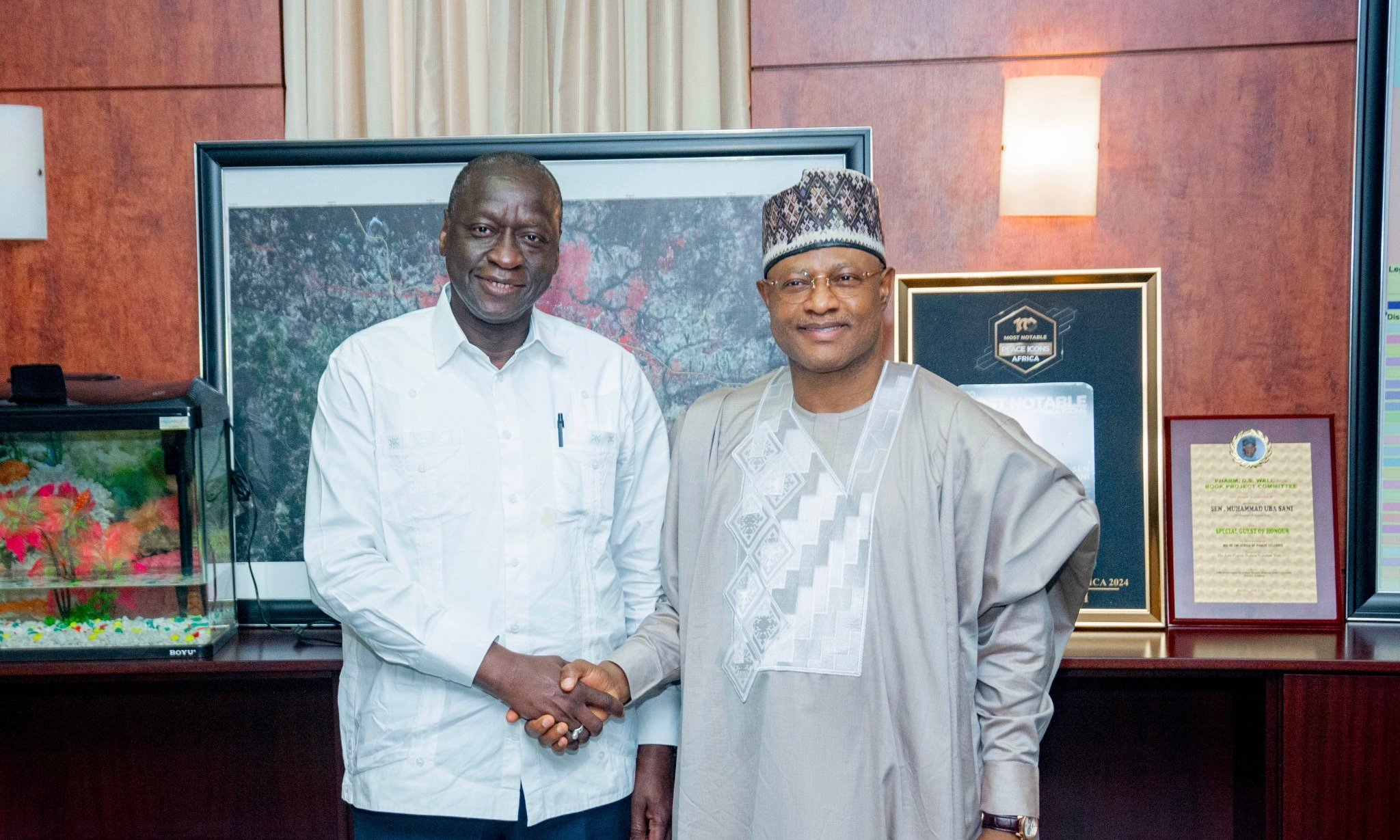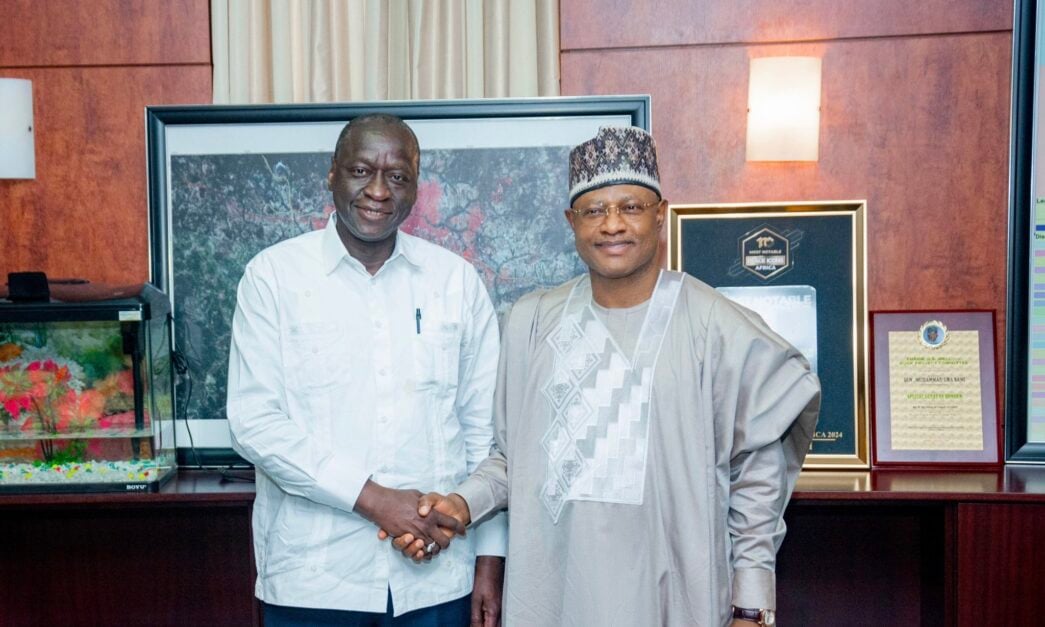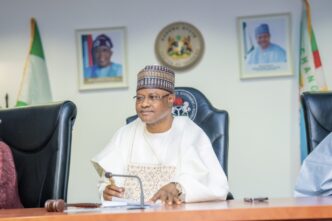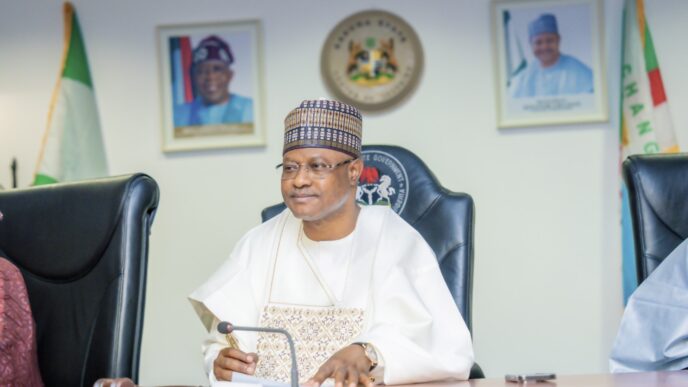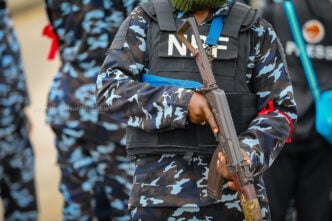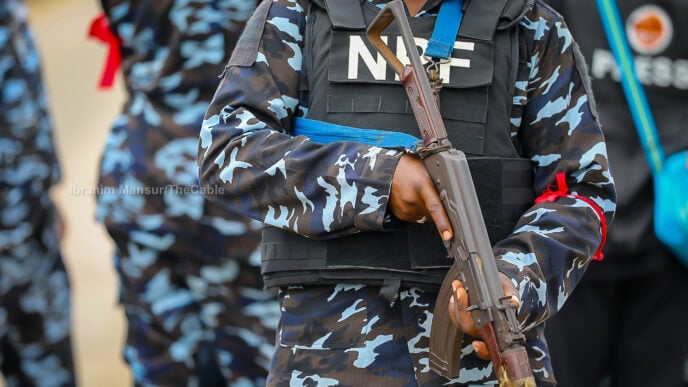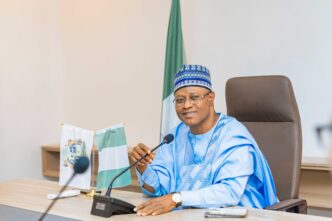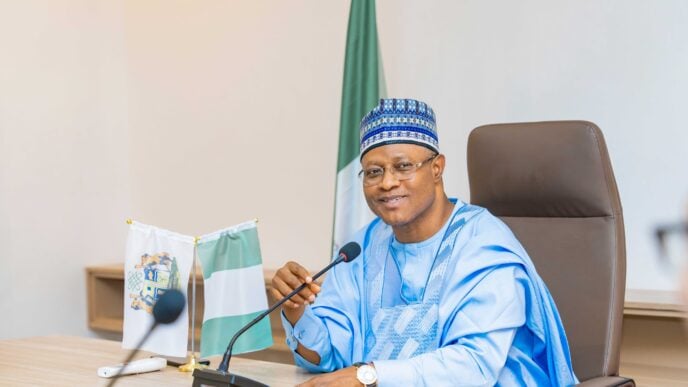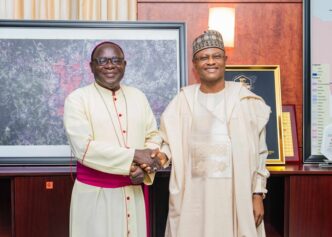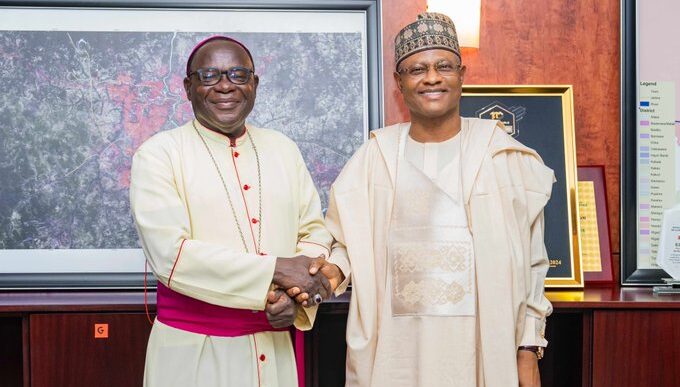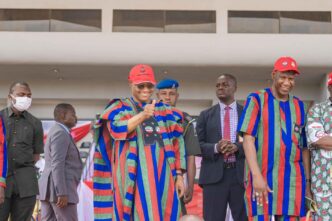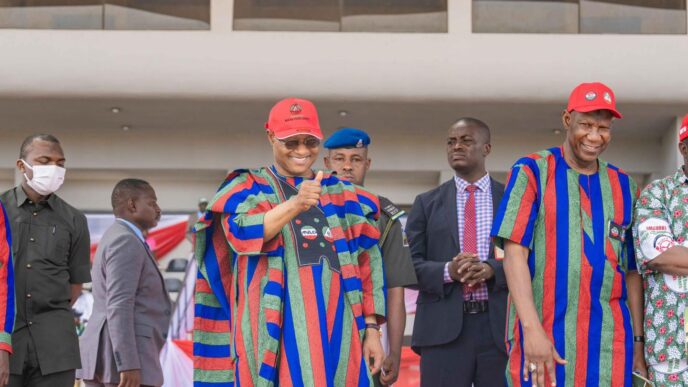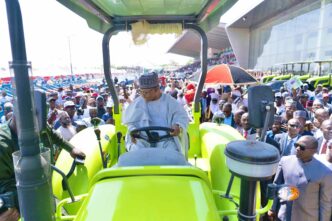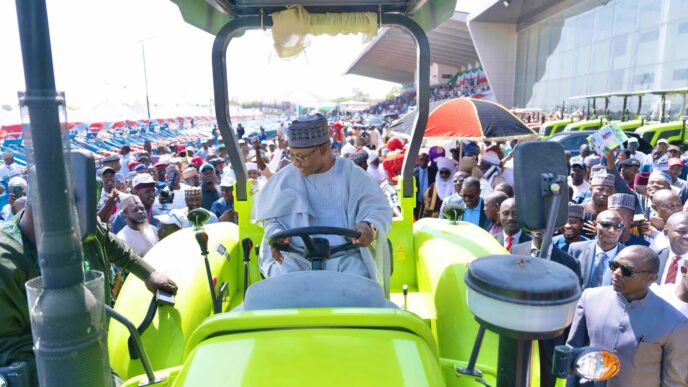L-R: Ousmane Diagana, the World Bank regional vice-president for Western and Central Africa and Uba Sani, governor of Kaduna, following a meeting between the state government officials and the bank’s delegation in Kaduna on April 16, 2025
Uba Sani, governor of Kaduna, says the state is eager to strengthen its existing partnership with World Bank.
Sani spoke on Wednesday while receiving Ousmane Diagana, the World Bank regional vice-president for Western and Central Africa, at the Sir Kashim Ibrahim House in Kaduna.
He said the state can become a model for the successful implementation of the World Bank-funded projects in Nigeria with its strengthened systems and consistent leadership.
The governor commended the lender for supporting Kaduna on a diverse portfolio of development projects, aiming to improve education, healthcare, infrastructure, environmental resilience, agriculture, and social welfare.
Advertisement
“These projects have not only reinforced the state’s development agenda but have also contributed to reducing poverty and enhancing the quality of life across various sectors,” Sani said.
“Kaduna state looks forward to strengthening the existing partnerships with the World Bank and exploring new areas of collaboration.”
PROJECTS FUNDED BY WORLD BANK IN KADUNA
Advertisement
Sani said eight projects funded by the World Bank in the state amount to over $885 million, including the adolescent girls’ initiative for learning and empowerment’ (AGILE) project.
“The AGILE project has advanced secondary education opportunities for adolescent girls, achieving over 70% disbursement and notable progress in school infrastructure and enrolment campaigns,” he said.
The governor also disclosed that the accelerating nutrition results in Nigeria’ (ANRiN) project, valued at $17 million, has been fully disbursed and officially concluded.
He said the health and nutrition project significantly improved nutrition services for pregnant and lactating women, adolescents, and children, helping to reduce maternal and child mortality.
Advertisement
Sani said the state has also received support from the Nigeria COVID-19 action recovery and economic stimulus programme (NG-CARES), which was introduced as a response to the pandemic.
The governor said the $20 million initiative is aimed at assisting vulnerable households and small businesses, with about 45 percent of the funds already disbursed and fully put to use.
He also disclosed that Kaduna has accessed funding from the $700 million agro-climatic resilience in semi-arid landscapes (ACReSAL) project, which seeks to address land degradation and climate resilience through watershed management and afforestation.
“Over $5.8 million has been disbursed, with implementation gathering momentum,” Sani said.
Advertisement
Speaking on the Kaduna rural access and agricultural marketing project (KADRAAMP), the governor said the $20 million initiative is focused on improving rural infrastructure to boost access to agricultural markets through the rehabilitation of rural roads.
The politician said 50 percent of the loan has already been utilised, while requests for counterpart funding for 2025 are currently being considered.
Advertisement
Regarding the state’s involvement in the $700 million sustainable urban and rural water supply, sanitation and hygiene (SURWASH) programme, he said progress is being made, with over $4.2 million already accessed.
Sani said the Kaduna government has committed more than N11.5 billion in counterpart funding across the initiatives.
Advertisement
Additionally, the governor disclosed that 30 percent of the $20 million allocated to the livestock productivity and resilience support (L-PRES) project — launched in early 2024 — has been disbursed for implementation.
He said the immunisation plus and malaria progress by accelerating coverage and transforming services (IMPACT) project is focused on improving immunisation rates and reducing malaria cases.
Advertisement
He noted that less than half of the $18 million allocated for the project has been disbursed so far, with implementation ongoing, prioritising expanded coverage and improved service delivery.
